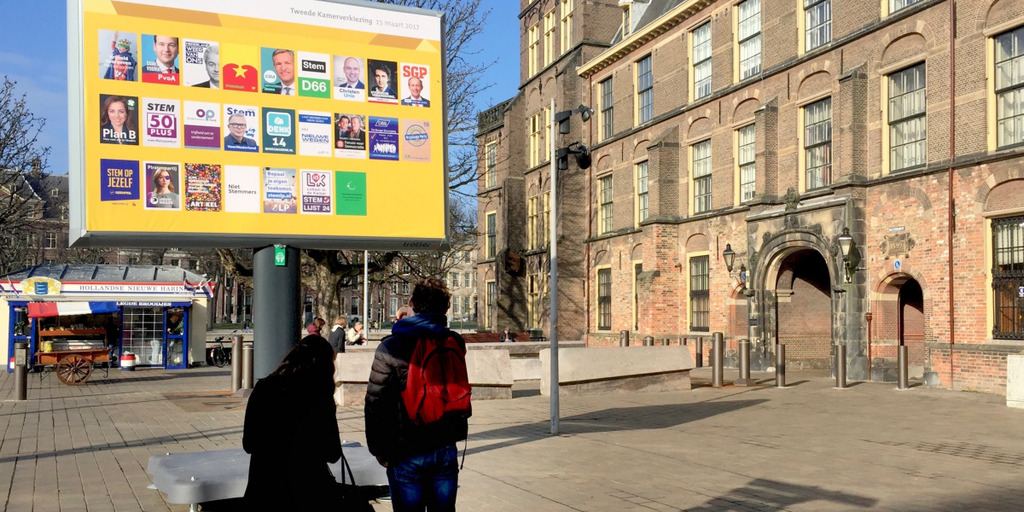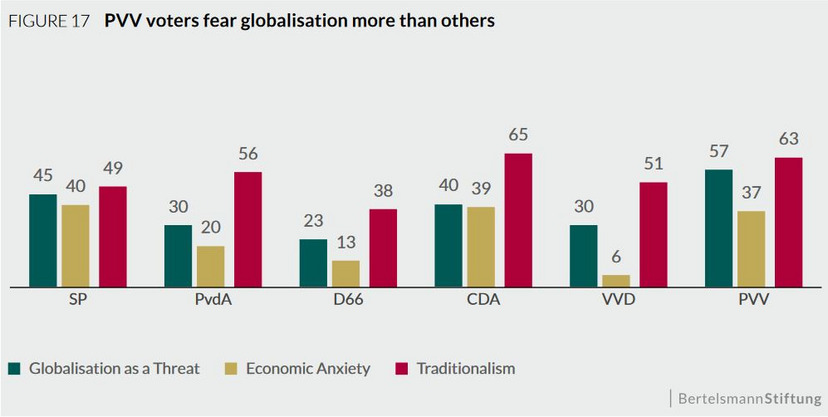The Netherlands is one of nine European countries that share a border with Germany. The country situated on the North Sea is home to 17 million people. The head of state is King Willem-Alexander; since October 2010 the prime minister has been Mark Rutte of the center-right VVD party. What is the situation as the election approaches? We take a look here at some key economic and social issues.

Patrick Rasenberg / flickr - CC BY-NC 2.0, https://creativecommons.org/licenses/by-nc/2.0/
Fact Check: The Netherlands goes to the polls
Parliamentary elections are being held in the Netherlands on March 15. The right-wing populist PVV party has repeatedly succeeded in infusing the campaign with anti-Islamic sentiment and prospects of the Netherlands leaving the EU, also known as "Nexit." But what about the facts? How is Germany's neighbor doing in terms of its economy, social situation and global ties?
The Netherlands leads the EU in employment, while joblessness among the young continues to fall
Is my job secure? Is my children's future bright? Will I have enough to live on when I'm old? Those are questions that people ask themselves everywhere, including in the Netherlands. Last August and November, we released two studies that evaluated data from 2014 and 2015 for all 28 EU member states. As the studies show, the Netherlands is doing comparatively well when it comes to creating jobs and alleviating poverty.
For example, although the government coalition of centrist neoliberals and social democrats, which has been in power since November 2012, has passed aggressive cost-saving measures to counteract the consequences of the 2008 global financial and economic crisis, at 74 percent the Netherlands still has the second highest employment rate in Europe.
Moreover, a majority of the country's young people can again look optimistically to the future, since the youth unemployment rate – which is still considerably higher than before the global economic crisis, when it was 5.3 percent – has steadily declined in recent years from 13.2 percent in 2013 and 12.7 percent in 2014 to 11.3 percent in 2015. That means the country currently has one of the lowest levels of youth unemployment in the EU. At 7 percent, compared to an EU average of 17 percent, the Netherlands also has Europe's lowest level of young people between the ages of 20 and 24 not in education, employment or training (NEET).
Poverty is a problem, but efforts to combat it have been relatively successful
Numerous people in the Netherlands are poor or at risk of poverty. Compared to its European peers, however, the county has been relatively successful at combating poverty. In 2015, for example, some 17 percent of the Dutch were at risk of poverty, the third lowest figure in the EU. In addition, the country has the lowest rate of elder poverty (people over 65) and the fifth lowest rate of child and youth poverty (children and adolescents up to 17 years).
In terms of social and pension policies, the Netherlands is relatively well positioned. In 2014, for example, the country had, at 45 percent, an above-average rate of child-care provision (EU average: 28 percent) and the Dutch pension system remains exemplary compared to other EU member states. As in other European countries, however, demographic change is putting increasing pressure on the country's pension system and making reforms necessary, although it remains to be seen if and how they will be carried out.
Challenges include indebted households and insufficient workforce integration of young immigrants and older unemployed workers
The Netherlands is thus doing well in some areas; in others, however, there is much work to be done. Prosperity, for example, is unequally distributed, and the gap between top earners and the middle and lower classes is growing. One key reason for this is that many private households are in debt, to a greater degree than in most other European countries.
Furthermore, although the Netherlands has a low unemployment rate of 6.9 percent and a low long-term unemployment rate of 3 percent, which puts the country in the upper middle tier of European nations, a number of countries large and small, including Germany and Denmark, demonstrate that things could be better.
When it comes to the Dutch job market, moreover, young immigrants and older unemployed workers often get left behind. The Netherlands has done an insufficient job of integrating young migrants into the labor force, making the country second to last in this area compared to other EU countries. And anyone in the Netherlands who is older than 50 and without a job has only a limited chance of finding one.
An analysis by professor emeritus Robert Hoppe, one of the authors of the study we published last summer, also shows that in terms of its effectiveness, the Dutch tax system leaves something to be desired. The analysis also shows that the country's justice system, transport infrastructure and energy supplies all urgently need reform. In other words, the new Dutch government will have its work cut out for it.
More than others, PVV supporters fear globalization
As a former colonial power in Asia, Africa, South America and the Caribbean, the Netherlands has always been globally oriented. In Europe, the Dutch have been cooperating particularly closely since the 1950s on political and economic issues with Germany, France, Italy, Belgium and Luxemburg. From the very beginning, the Netherlands has participated in all the major steps that have created today's EU, including the founding of the European Coal and Steel Community in 1951 and the signing of the Treaty of Rome in 1957. Thus, it is no coincidence that the European Union's founding document was signed in the Dutch city of Maastricht.
Yet quite a few people in the Netherlands view globalization as a "threat" – 40 percent, according to our survey of last August. Of all Dutch parties, people who say they support the right-wing populist PVV party are, at 57 percent, the most fearful of globalization and its consequences by a wide margin. This is an attitude that is also found among supporters of other right-wing parties in Europe. In the Netherlands it is expressed in various ways, including the many disparaging remarks made by PVV leader Geert Wilders about Muslim immigrants, calls for suspending the Schengen Agreement, and the concept of "Nexit", whereby the Netherlands would leave the EU.
But who supports and votes for Geert Wilders? Answers in our short analysis.

Bertelsmann Stiftung
Only a majority of the PVV voters fears the globalization. Looking at the voters of the Socialistische Partij (SP), the social democratic Partij van de Arbeid (PvdA),the left-liberal Democraten 66 (D66), the christ-democratic Christen Democratisch Appèl (CDA) and the center-right Volkspartij voor Vrijheid en Democratie (VVD) globalization skeptics are in a clear or strong minority.
The Netherlands has benefitted from globalization
Yet as our survey also makes clear, a majority of the Dutch – 60 percent – view globalization as more of an opportunity than a threat. Our current globalization report further supports this finding, showing that the country's global ties grew continually between 1990 and 2014. That means that real gross domestic product was, in annual, per capita terms, €690 higher than it would have been without ongoing globalization. Adjusted for purchasing power, the per capita gain increases to €840. That shows that, on average, Dutch consumers have also benefitted from globalization.
As a small country with a small domestic market, the Netherlands has a considerable interest in maintaining an open economy and global economic ties. Most of the population seems to recognize that fact – which perhaps bodes well for the coming election.


